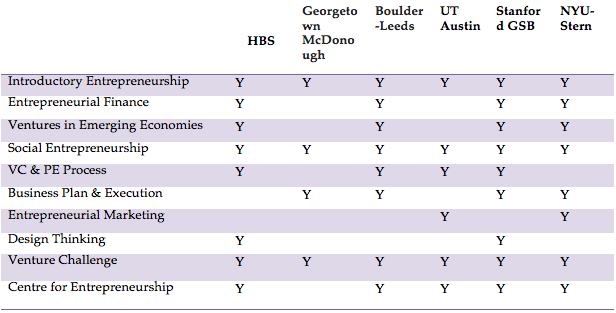If ur looking at rankings & buying all the hearsay, ur doing it completely wrong. Choosing a good school is more an art than it is a spraying and praying tactic. They say fit is everything, but that's painting only half the picture. With options aplenty, one is in a fix when it comes to picking the diamond in the haystack. Here's making it simpler-
- Analyze the curriculum very closely, but look for industry & recruitment stats too. Lets assume for an instance that you are looking to pursue a role in Marketing post the MBA. You obviously going to look for a school that is strongly associated with Marketing. While Kellogg stands out as the premiere institution in this regard taking top honors in the rankings, the fact is that Haas places more of its students in a Marketing role (>20% of students ) than does any other top 10 school. One needs to be cognizant of these intricacies when forming a decisive consideration set. So although stats are important, a considerable fact finding needs to be done on your part. Geography can be immensely important too in taking a pick.
- Having enough room to play, in terms of depth in various electives is a real value-add. For example, a strong real estate or an energy program to complement the finance & marketing electives could go a long way. Sometimes, a course outside of the business arena can also do wonders (more on this later).
- Strength of university- not necessarily ranking only. It pays to be in a uni that emphasizes cross- campus immersion. Every C-level person I interact with greatly lays importance on this aspect. “The days a CEO being a Finance or a Marketing CEO are over. One has to be able to understand the granular aspects of all functions to operate in this day and age” says Gary Loveman- analytics mastermind & maverick CEO of Caesar Entertainment. This opinion was echoed by a recent talk hosted by the ex-CFO of Vail Resorts & current Executive-in-Residence at the Leeds School of Business. So stretch yourself, going the extra mile now wil pay rich dividends later. But also make sure the university offers courses outside of the B-school.
Law and Engineering courses are the most sought after, outside of the MBA. Not only does it help persuade employers about a future in this (technology?) industry, it helps understand the language and part of the tactical gameplay at work. Law especially helps in understanding the contractual side of things which can be critical in the business world. This also pushes you to be self-reliant.
- School & community culture- The importance of this cannot be stated enough. A close knit, community feel that uplifts the MBA experience immensely. Not only does this help in flow of information on jobs (in the future), events and collaboration on work non- curriculum related, but it creates a healthy vibe among the cohort. John Byrne talks about such a cogent healthy interaction between students at Kellogg and how its brought about by the dean. This is also appreciated by recruiters and has a great spillover effect.
While class differences are quite prevalent, the need of the hour is to thrive in a place that offers the best overall collaborative environment.
Community can also be an amazing asset while in school. Makes for a great learning experience- something I have spoken about here.





 RSS Feed
RSS Feed